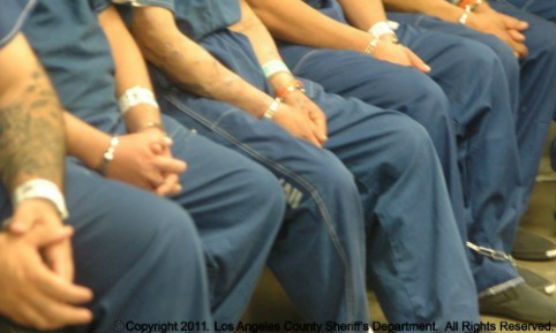By Maria Dinzeo
SAN FRANCISCO – Fourteen years ago, Jay Jordan was convicted of vehicle theft. He’ll never be able to coach his son’s little league team, volunteer for the PTA, or adopt another child. These are just a few of the 40,000 legal restrictions he faces as a result of his conviction.
“I pay full taxes, but I cannot access full society,” he said.
But on Thursday, San Francisco District Attorney George Gascon and Assemblyman Phil Ting, D-San Francisco, announced legislation to help 8 million Californians expunge their criminal records.
Assembly Bill 1076 would require the California Department of Justice to create a database of all Californians who qualify for record expungement. It would automatically clear records for arrests that did not result in a conviction and clear convictions for qualified misdemeanors one year after an arrest, as well as non-violent, non-sex felonies three years after arrest.
“AB 1076 will begin to chip away a big piece of this iceberg of barriers that block people from living everyday life. These 40,000 legal restrictions, about 50 percent are employment related and 70 plus percent are lifetime bans. So that means I’m going to die with these collateral consequences. And it’s not just people like me. It’s not just black folks in east side Oakland. It’s a lot of people. It’s families,” Jordan said at a press conference at the DA’s office Thursday.
Courts will be notified and asked to withhold the records from private companies that sell such information to third parties.
“The information will continue to be available for criminal justice purposes,” Gascon said. “It will simply not be used to keep people from getting housing, getting employment, getting educational loans, and participating in simple things like after-school activities with your children.”
Californians are already able to petition to have their criminal records expunged under the penal code, but the process can be costly and time-consuming, with fees of upwards of $3,700.
“There’s this concept that expungements are easy, just go to the courthouse and get an expungement,” Jordan said. “But when you’re working eight hours a day trying to support your family, you can’t take two and three days off of work. You don’t have an extra $3,500 to pay for an expungement.”
The legislation comes as Gascon’s office moved last year to expunge more than 3,000 marijuana misdemeanor convictions dating back to 1975.
Like this:
Like Loading...
Related





 Tweet This
Tweet This Facebook
Facebook Digg This
Digg This Bookmark
Bookmark Stumble
Stumble RSS
RSS


























REAL NAMES ONLY: All posters must use their real individual or business name. This applies equally to Twitter account holders who use a nickname.
0 Comments
You can be the first one to leave a comment.